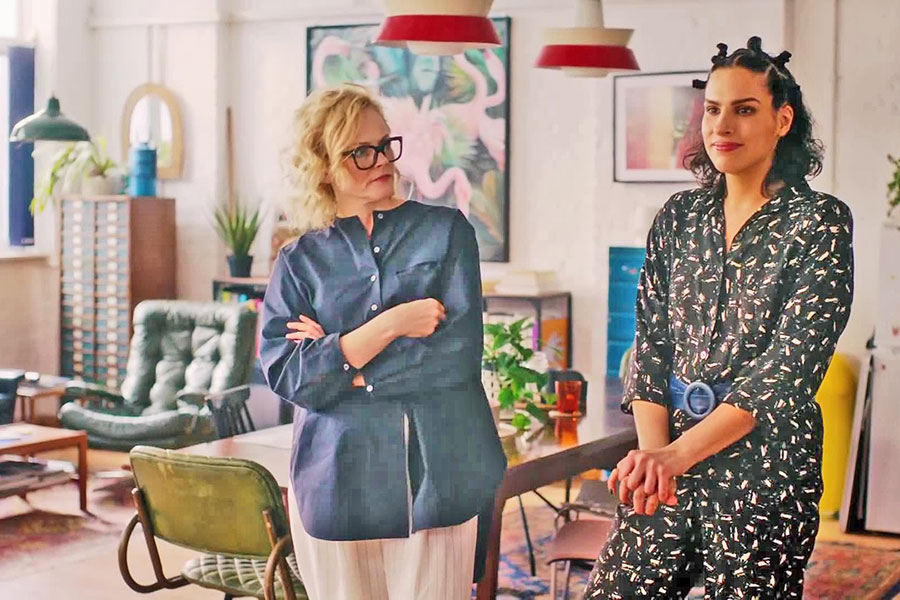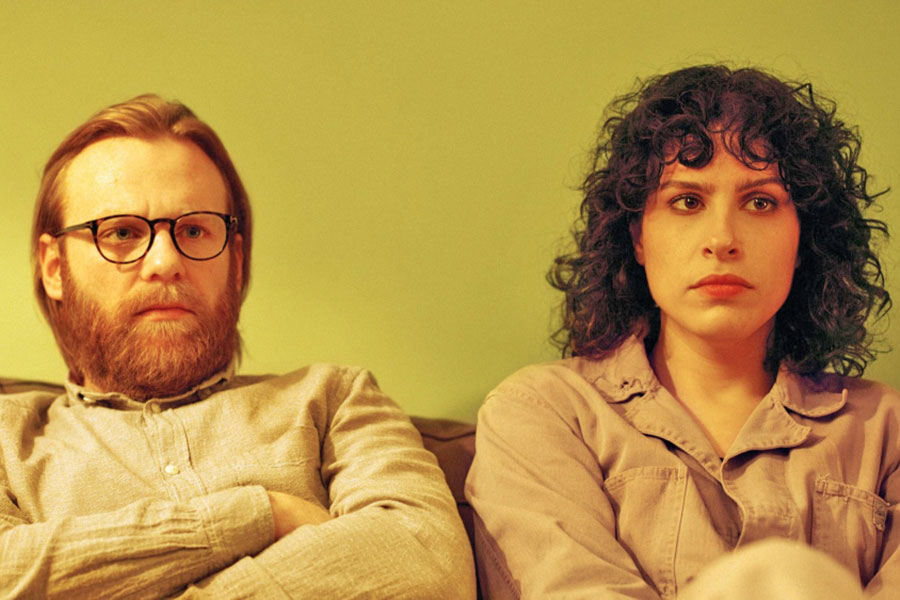
Bisexuality has been a trope on TV for decades, and not a good one. For years both lesbians and bisexual women have watched with dismay as bisexuality or lesbianism in a TV character was erased.
Most often a lesbian character suddenly begins an affair with a man, as did Bianca Montgomery’s female partners on “All My Children.” Or a bisexual character enters a long-term relationship with a woman, as Dr. Callie Torres did on “Grey’s Anatomy,” and her bisexuality is erased. Or a bisexual character enters into a long-term relationship with a man after a bad relationship with a woman, and bisexuality is deemed a stepping-stone to heterosexuality, as happened to Angela Montenegro on “Bones.” Or bisexuality is a stand-in for “will have sex with anyone indiscriminately,” as with Ilana Wexler on “Broad City.” Or a bisexual character has sex with multiple partners, like Thirteen did on “House” — after she was diagnosed with a terminal illness, she is branded a slut and bisexuality is pathologized.
TV does bisexuality a lot, and nearly always gets it wrong.
Enter Hulu’s new dramedy series, “The Bisexual,” about a bisexual character finding her bisexual self. Written for British television, the series debuted on Channel 4 in October and begins streaming on Hulu Nov. 16.
“The Bisexual” gets bisexuality right.
In a BFI (British Film Institute) panel discussion on the series, available on YouTube, the show’s creator, filmmaker Desiree Akhavan (The Miseducation of Cameron Post), who is openly bisexual, explained she made the series in part to address her own sexuality and how it was portrayed and described.
Akhavan said “bisexual” had become a descriptive that made her feel uncomfortable, particularly when she was introduced on panels like that at the BFI.
“I was always introduced as ‘the bisexual film-maker’, ‘the bisexual writer’,” Akhavan said, adding that she wouldn’t have been bothered by being described as a lesbian. “But for some reason, when I heard it [bisexual], it just felt deeply humiliating and personal, like, ‘the bedwetter Desiree Akhavan’. I guess I wanted to make something that chased why.”
Bisexuals everywhere will be glad she did. “The Bisexual” is funny, wry, poignant, sad, honest and revelatory. The series is written and directed by Akhavan, who also stars as Leila, the eponymous bisexual of the title.
Leila has been in a 10-year lesbian relationship with Sadie (played by the always-spectacular Maxine Peake). But when Sadie proposes marriage, Leila proposes a break.
Hilarity, pathos and lots of questioning ensue.
Akhavan’s acting is superb and her Leila is hyper-realistic as she attempts to navigate her own desires. Leila’s unsure she even has desires for men — she is unwilling to forgo considering men as sexual partners when she’s never had sex with one.
Leila finds a roommate, Gabe (Brian Gleeson), and bounces all her frustrations off her bestie, Deniz (Saskia Chana), whose deadpan responses to Leila are fabulous.
Awkward and utterly unsure how to approach or deal with men as sexual creatures, Leila is woefully and delightfully inept — which is Akhavan putting the kabosh on the trope of the hyper-sexual bisexual who’s a walking Kama Sutra. In one scene, Leila attempts to masturbate a man who is clearly in distress at her clumsiness. She explains that she’s new to all of this and says, matter-of-factly and not a little clinically, that she’ll just give him oral sex instead, implying it will be better. He disbelieves her, as do we, but she’s determined and the camera focuses on his worried face as she slips utterly unsexily to the floor.
These intentionally comic scenes run counterpoint to the deeply emotional scenes between Leila and Sadie, who also run a business together, and thus must navigate the rupture on a daily basis that is painful and angry.
It was an interview about that business and whether the couple would have children that had prompted Sadie’s proposal and Leila’s anxiety attack. Leila’s younger than Sadie and suddenly felt trapped. She’d never contemplated the world outside Sadie. Now faced with monogamous lesbianism as her future, she finds herself unsure and unready.
The devastating aspects of the “break,” as Leila keeps referring to it, are not lost on the viewer. After 10 years, Sadie was sure she and Leila were a forever pairing. But maybe so was Leila. And that is one of the many things “The Bisexual” tries to unpack: Can a bisexual be faithful in a relationship with a person of one gender when/if their desire runs to both? As Leila tells Gabe, bisexuality “makes you feel like your genitals have no allegiance.”
Akhavan the writer also pokes fun at other real-life tropes. In the first episode, in an ironic foreshadowing, Leila is at a club getting drunk with some lesbian friends who are discussing sexual tourism and says, “I’m pretty sure bisexuality is a myth — that it was created by ad executives to sell flavored vodka.” One of her friends retorts, “Has anyone ever actually met a bisexual?”
In a different scene, when one of the younger characters tells Leila that she is also “queer,” Leila eye-rolls her and says, “Everyone under 25 thinks they’re queer.”
